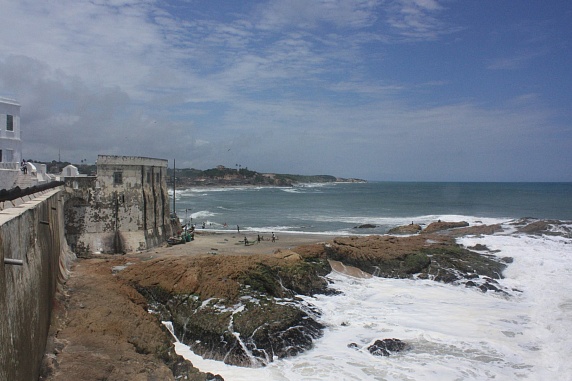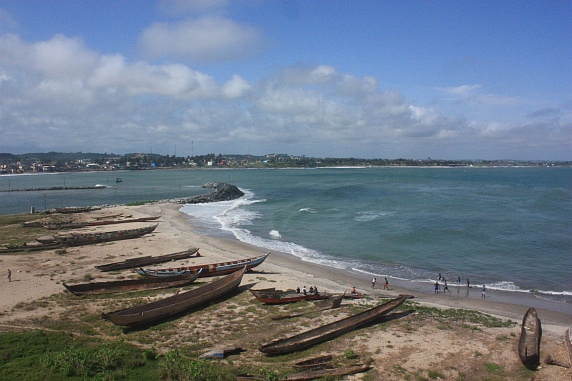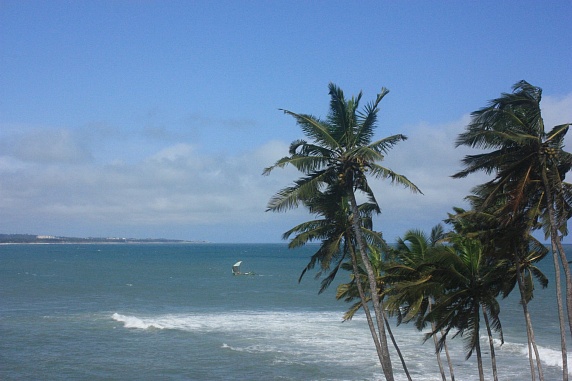 the Republic of Ghana
the Republic of Ghana
Foreign Minister Sergey Lavrov’s statement and answers to media questions at a news conference following talks with Ghana Minister of Foreign Affairs and Regional Integration Shirley Ayorkor Botchvey, Moscow, August 20, 2019
Ladies and gentlemen,
The talks with Foreign Minister of Ghana Shirley Ayorkor Botchvey were substantive, useful and aimed at capitalising, as effectively as possible, on our good political dialogue and close contacts in the international arena to step up cooperation in other fields and expand bilateral trade and investment through the mechanisms of the Inter-Governmental Commission on Trade, Economic, Scientific and Technical Cooperation in order to launch mutually beneficial joint projects in various areas, including the energy sector, agriculture and infrastructure-related matters.
We reaffirmed our joint commitment to help promote humanitarian ties and we will continue to teach Ghana students at Russian educational institutions. We agreed to work faster on some draft agreements and memoranda, which will make the legal framework for our cooperation stronger. We agreed to encourage the business communities and chambers of commerce and industry in the two countries to continue building up direct contact.
The approaches we take to international issues have much in common and in the majority of cases they coincide. Like our friends from Ghana, we are committed to all the UN Charter principles and goals and advocate respect for sovereignty, the sovereign equality of countries and non-interference in their domestic affairs, as well as the right of peoples to decide on their development models on their own. We reject methods like blackmail, ultimatums and other forms of illegitimate pressure as they do not comply with the generally accepted norms of international law.
We are grateful to Ghana for the support it traditionally offers to Russian initiatives at the UN, which in some cases it co-authors, on issues such as the unacceptability of glorifying Nazism and deploying weapons in space, the need to ensure that cooperation in space is based on trust and transparency, and international information security. These are very important topics, especially given the plans of some countries to act unilaterally in cyberspace and outer space, rather than on the basis of approaches coordinated in universal formats.
We paid a great deal of attention to the developments in Africa, including in the context of these countries’ development strategies and terrorist threats, which, unfortunately, still persist there and are even increasing in some countries. As for the Sahara-Sahel region, this situation can be explained by the extremely negative consequences of NATO aggression against Libya in 2011. After the Libyan Arab Jamahiriya collapsed as a state, conditions were ripe for terrorists and arms and drug traffickers, who started to penetrate, as if through a black hole, into Libya and other African countries, including the Sahara-Sahel area.
We have reviewed progress in preparing for the first Russia-Africa Summit in Sochi scheduled for October. We are grateful to President of Ghana Nana Akufo-Addo for accepting President Vladimir Putin’s invitation to attend the summit and his plans to take an active part in this event. We discussed the preparation of the outcome documents of this summit. I believe the summit will facilitate the development of the full range of Russian-African relations.
We also talked about the ongoing discussion at the UN on Security Council reform. Russia reaffirmed its firm position that this discussion must seek to resolve the issue of having developing countries, including Asia, Latin America and, by all means, Africa better represented on the council.
I think the talks gave us a chance to compare notes on a number of important aspects of relations between Russia and Ghana, as well as the international agenda. I am very grateful to my colleague for the productive work we’ve done together.
Thank you.
Question: We see how quickly the situation is developing in the Idlib area. Yesterday, Syrian aircraft fire stopped a Turkish military convoy which was moving towards the town of Khan Shaykhun, which is now a place of fierce battles between the government forces and various militant groups. What’s your take on the situation there and this particular incident? Are you in contact with Turkey regarding what is happening there now?
Sergey Lavrov: Of course, we are not just monitoring the situation, but our military are on the ground in the Idlib de-escalation zone, which was created by a document signed by Russian President Putin and President of Turkey Erdogan in Sochi last September. This agreement implied the commitment of our Turkish colleagues to effect the separation of the armed opposition open to a settlement from terrorist groups, primarily, Jabhat al-Nusra, which at that time controlled almost half the territory of the Idlib de-escalation zone as defined by the Russian-Turkish arrangements, and later converted itself into Hayat Tahrir al-Sham. Unfortunately, at the moment, the territories controlled by this group make up 90 percent of the Idlib de-escalation zone.
In order to halt the regular violations of the ceasefire by the terrorists (although it does not apply to them), we together with our Turkish colleagues made it clear that if the militants continue to carry out attacks against the Syrian army, civilians and our air base in Khmeimim from this area, these attacks will be swiftly suppressed. Such provocations never stopped this year. There were dozens, if not hundreds of them, including several dozen provocations using unmanned aerial vehicles and attack drones which tried to hit targets at the Russian air base in Khmeimim. In all these instances, our Turkish colleagues were warned that we would strike back, and that this practice cannot stop, because the Idlib agreement does not provide for applying the ceasefire to terrorists. To eliminate the risks for our military base, the Syrian military units and towns located outside the Idlib zone, the presidents of Russia and Turkey agreed to create a demilitarised zone inside the de-escalation area earlier this year, and move all weapons 10 to 20 km inland in different parts of this perimeter, so that the distance to which they will be moved precludes provocations as I mentioned.
Several observation posts were created by the Turkish military. We hoped that this would deter provocations, but they continued, including over and above Turkish military observers.
The situation currently unfolding there now is due to the fact that the extremists use it as a staging area to continue to hit targets located on the rest of the Syrian territory. Our military, of course, are in contact on a daily basis. The current situation is also being discussed in detail by them now.
Question: Following the recent meeting between the Russian and French leaders, has the timeframe for a Normandy format meeting, at the ministerial level, if not at the top level, been clarified?
Sergey Lavrov: Yesterday, President of Russia Vladimir Putin and President of France Emmanuel Macron commented on this subject in great detail at a joint news conference prior to talks. As President Putin said, we are ready to meet in any format only if this yields results. President Macron also confirmed that he does not support a meeting for meeting’s sake.
First of all, we discussed the need to fulfil specific agreements reached by the Normandy Four leaders in Berlin in October 2016, that is, almost three years ago. This means a complete disengagement of forces and resources in three pilot sectors along the demarcation line in Donbass. The former Ukrainian President Petr Poroshenko’s administration sabotaged this agreement from the very beginning and until its final days. Today, the Contact Group is making tentative progress in disengaging forces and equipment in Stanitsa Luganskaya. It is necessary to restore the status quo in two other sectors because units of the Ukrainian armed forces that initially withdrew from there in late 2018 and early 2019 have returned once again. First, it is necessary to accomplish this task and to fulfil the 2016 agreements reached by the leaders.
Second, President Putin confirmed yesterday that it is necessary to clearly formalise the Steinmeier Formula for the procedure for enacting the law on the special status [of Donbass]. All this was coordinated in great detail, and we now suggest legally formalising this on paper in the Normandy format and the Contact Group. Therefore the results of the last Normandy Four summit will be fulfilled, and it will be possible to discuss any subsequent steps that have to be taken in line with this format.
This, of course, will call for preparatory work. The foreign policy aides of the Normandy Four leaders met last month in Paris, and their meeting was useful. We stated this yesterday during talks with our French colleagues. It is necessary to prepare additional steps that will help fulfil the Minsk Agreements. As I have already said, the fulfilment of the previous summit’s agreements is the first stage. After that, it will be possible to talk about preparations for a new summit.









